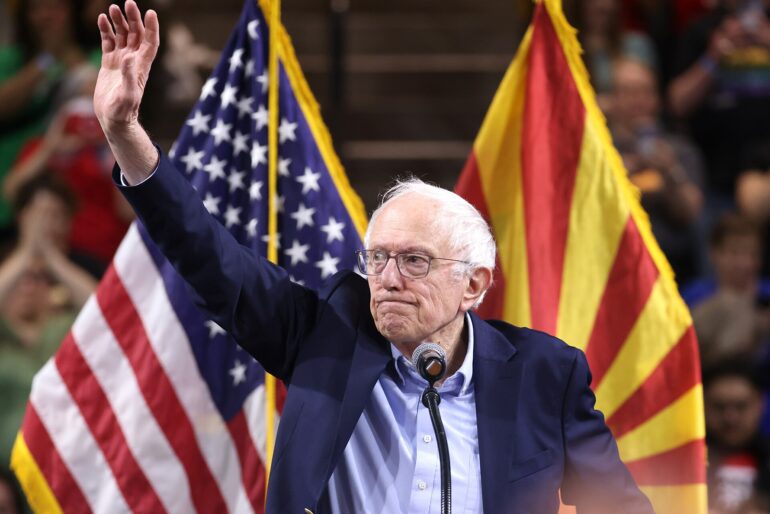Independent Sen. Bernie Sanders of Vermont reportedly issued a stark warning this week, cautioning that the Democratic Party’s survival is far from assured unless it breaks away from elite influence and reconnects with ordinary Americans.
Speaking on The New York Times’ “The Opinions” podcast Monday, Sanders said the party has strayed too far from its populist roots and become an insular institution dominated by consultants and wealthy donors. “When I ran for president, you know, one of the things that I learned is there ain’t much of a Democratic Party. There are people on the top,” Sanders said. “When I think about a party, I think about the involvement of large numbers of people at the grassroots level … People disagree. They yell and shout at each other. As people have said, democracy is kind of messy.”
The self-described democratic socialist, who twice sought the Democratic presidential nomination, lamented what he sees as a hollowed-out organization defined more by fundraisers than by working-class activism. “When people think about the Democratic Party, they think of these cocktail parties in New York City or LA, where wealthy people mingle with consultants, mingle with the leadership,” he said. “That’s not much of a party. That’s really kind of an elitist institution.”
Sanders’ critique arrives at a moment of deep unease within the Democratic ranks. According to the RealClearPolling average, the party’s favorability has fallen to just 33.4 percent. A New York Times analysis published in August showed that between 2020 and 2024, Democrats lost roughly 2.1 million registered voters nationwide. Meanwhile, a May Puck/Echelon poll found that likely voters increasingly describe the Democratic Party as “liberal, weak, corrupt.”
For Sanders, the answer is not further centralization, but democratization. “If the Democratic Party is to survive, maybe it will, maybe it won’t,” he said. “The transformation has to be to open the doors, to bring in millions of people, to hear what they have to say, to have them start running for office.”
His frustration with party leadership is not new. In a May appearance on the podcast “Flagrant,” Sanders accused the “Democratic establishment” of actively resisting his two presidential campaigns. “[T]he establishment did not want to open the door. They hated the idea for all these people whose hands were a little bit dirty, who didn’t have PhDs or weren’t wealthy,” he said. “Imagine walking in: ‘It’s my party, man. You ain’t getting in. We will fight you in the most ruthless ways that we can.’”
Sanders has also tied the party’s recent electoral failures to its disconnect from working-class Americans. Following Vice President Kamala Harris’s 2024 defeat, he argued in a statement on X that Democrats had ignored the concerns of working people.
While Sanders’ politics place him on the far left, his warning underscores a broader concern increasingly voiced across the spectrum: that the Democratic Party’s elite image and failure to connect with everyday voters could spell long-term political decline.
[READ MORE: Former St. Louis News Anchor Charged With Killing Her Mother in Kansas]



